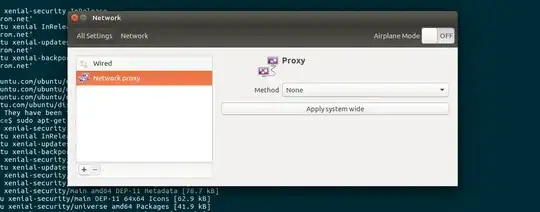I'm trying to disable the proxy for apt-get but it seems like apt-get gets it's proxy configuration from somewhere else other than /etc/apt/apt.conf, because although the apt.conf file is empty (and the system proxy set to None) it's still trying to connect to the proxy.
Anyone got an idea?

/etc/apt/apt.conf– Ahatius Oct 18 '18 at 19:30